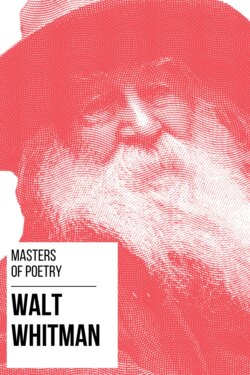Читать книгу Masters of Poetry - Walt Whitman - August Nemo, John Dos Passos, Ellen Glasgow - Страница 51
На сайте Литреса книга снята с продажи.
VI
ОглавлениеWhitman has let himself go, and trusted himself to the informal and spontaneous, to a degree unprecedented. His course required a self-reliance of the highest order; it required an innate cohesion and homogeneity, a firmness and consistency of individual outline, that few men have. It would seem to be much easier to face the poet's problem in the old, well-worn forms—forms that are so winsome and authoritative in themselves—than, to stand upon a basis so individual and intrinsic as Whitman chose to stand upon. His course goes to the quick at once. How much of a man are you? How vital and fundamental is your poetic gift? Can it go alone? Can it face us in undress?
Never did the artist more cunningly conceal himself; never did he so completely lose himself in the man, identifying himself with the natural and spontaneous; never emerging and challenging attention on his own account, denying us when we too literally seek him, mocking us when we demand his credentials, and revealing himself only when we have come to him upon his own terms.
The form the poet chose favored this self-revelation; there is nothing, no outside conscious art, to stand between himself and his reader. "This is no book," he says: "who touches this touches a man." In one sense Whitman is without art,—the impression which he always seeks to make is that of reality itself. He aims to give us reality without the usual literary veils and illusions,—the least possible amount of the artificial, the extrinsic, the put-on, between himself and his reader. He banishes from his work, as far as possible, what others are so intent upon,—all atmosphere of books and culture, all air of literary intention and decoration,—and puts his spirit frankly and immediately to his readers. The verse does not seem to have been shaped; it might have grown: it takes no apparent heed of externals, but flows on like a brook, irregular, rhythmical, and always fluid and real. A cry will always be raised against the producer in any field who discards the authority of the models and falls back upon simple Nature, or upon himself, as Millet did in painting, and Wagner in music, and Whitman in poetry.
Whitman's working ideas, the principles that inspired him, are all directly related to life and the problems of life; they are democracy, nature, freedom, love, personality, religion: while the ideas from which our poets in the main draw their inspiration are related to art,—they are literary ideas, such as lucidity, form, beauty.
